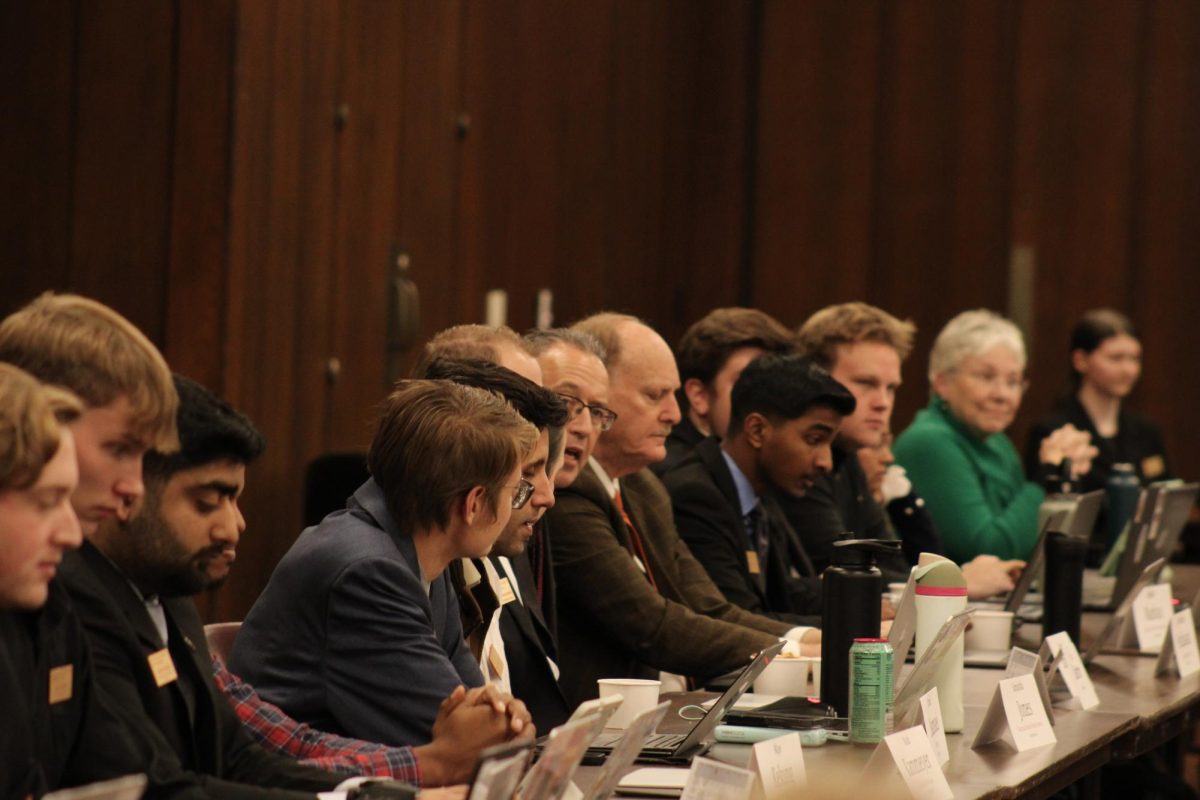COLUMN: The modal moral fallacy of conservativism
May 26, 2003
Ask of a liberal (or libertarian for that matter) what they find most exasperating about their opponents, and you will often find that it is conservatives’ irrepressible habit of “legislating morality,” something many conservatives make little effort to conceal at times. Ask the same of a conservative and you will often hear a contrary complaint — being subjected to the “legislated immorality,” be it through the liberal pretenses of multiculturalism or the libertarian principles of consent-based laws.
Herein lies the modal fallacy — despite the many flawed and coercive social policies liberals put forth (from paternalism to political correctness), not even the most hardened leftist has seriously put forth laws explicitly mandating behavior most reasonable individuals would find to be immoral. Indeed, we have yet to see proposals forcing devout Christians to renounce their faith, married persons engage in infidelity, or for teenagers to party and engage in promiscuous sex. While a more subtle version of the conservative criticism may be that leftist policies provide an environment conducive to such behavior, there has yet to be a law mandating any such acts — meaning the choices still lie squarely with the individual.
Compare this to the host of laws conservatives have advanced and defended on the premise of regulating the public morality of consenting adults, from drug laws to the most intimate of places, the bedroom. The most recent example that comes to mind is the Texas homosexual sodomy statute currently being challenged before the Supreme Court, defended by the state on the grounds of “advancing public morality” despite the fact that the act regulates behavior in the most private context.
Consider the case of Pennsylvania Sen. Rick Santorum, whose now infamous comments alluded to the idea that allowing consensual sex acts between adults to go unregulated opens the floodgates for “adultery, polygamy, bestiality, and incest” — ignoring the fact for the moment that acts such as bestiality and incest rarely involve consenting adults. Rather than castigate Santorum, the conservative establishment instead circled the wagons about him, with President Bush going so far as to plumb the depths of irony and call Senator Santorum “an inclusive man.”
Yet these issues of “public morality” raise disturbing concerns when weighed against the fact that we inherently live in a pluralistic society — our ethics, spiritual beliefs, and even cultures are not homogeneous by any means. Rather than hamper our society, it is this principle of pluralism which has helped America to thrive — through the constant churning of new ideas and values, America avoids intellectual stagnancy and irrelevance as a result.
Conservatives, however, often defend this principle of “public morality” by invoking a standard of commonality, arguing that society requires a cohesive value set to remain intact.
All questions beyond mutual respect for others falls into the domain of personal ethics — behaviors which do not directly impinge upon the rights of others to do the same. For example, the individual morality of an act like sodomy (such that it occurs between consenting adults ) is inherently an ethical question which must be answered by each individual, as the act in no way impinges upon anyone else’s right to choose otherwise. Nor does the absence of such a law governing this behavior which some may call “vice” comprise a sanction toward it on the part of government. Rather, it represents a neutrality, or “amorality” on the part of government — therein lies the modal fallacy of the conservative argument.
Many moral leaders complain that such a philosophy represents a “race to the bottom” — that a lack of standards represents legislating to the lowest common denominator. Yet these leaders forget that the burden of self-regarding ethics falls not on the community but rather the individual. It is the individual who must make proper choices, including that of values. It is the individual who assumes the responsibility for the consequences of their actions. Moral leaders indeed have value to society as teachers and leaders, yet the ultimate accountability for choices still lies with the individual. Law does not nor should it serve as a means of absolving the individual of their responsibility for determining personal ethics.
Individual accountability — isn’t this what conservatives have advocated all along?






